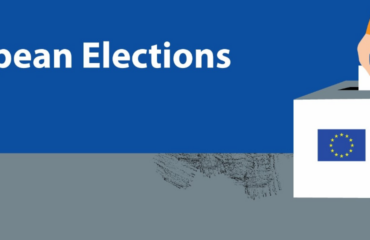The difference a vote makes? Second guessing British-EU environmental policy interactions after Brexit
Since Britain voted to leave the EU are we any wiser what it all means? Uncertainty seems the safest prediction for now. Yet given that Britain has played an important role in EU environmental policy, we need to try to make some sense of it.
Towards a more German-style EU environmental policy?
In the 1980s, Britain preferred generalist environmental quality standards, whereas the Germans wanted strict emission limits and targets. EU environmental policy now has both! Yet without British experts at the table, across all the EU institutions, future EU environmental policy will unquestionably change in tone and quality. Perhaps it will become more comprehensively German?
Would that be a bad thing given that Britain has played an almost laggardly role in some recent EU environmental negotiations (notably the new Renewables Directive)? However, the hope that Brexit might actually be a boon for more ambitious EU environmental policy making is naïve. There are plenty of other states, such as Poland, willing to dilute Brussel’s green credentials. In fact, the absence of Britain will more likely weaken green agendas in policy sectors such as agriculture and fisheries, two areas where the British have long demanded ‘greening’.
Environmental policy during the re-negotiation
In the forthcoming negations the only slight advantage the UK may have is that the EU states could be quite divided over how to treat the British. However, the Article 50 process has a timer attached, so after two years, Britain is ejected from the EU – deal or no deal. That will put British negotiators under a lot of pressure. Single market access, free movement of people and adherence to the acquis (the body of EU rules) will likely form the substance of negotiations. As such it is not likely that environmental policy will feature extensively. That might be a good thing, because the British may simply agree to continue to apply the EUenvironmental acquis, as far as is practicable, or some such formula.
Until negotiations are finished, EU environmental policies continue to apply and have force of law. That point is not trivial because the EU has been central to recent British litigation on air pollution and potentially fracking, where litigants were hoping to get a referral to the EU Court of Justice. Presumably post 2019 or later, that strategy will be exhausted. After Brexit we can suggest that British environmental law remedies will be simply less diverse and more uncertain, unless perhaps litigants can make extensive use of the EFTA Court.
Whatever party is in power in Whitehall will in the future matter more, because they will be less constrained by EU laws. A future Tory government, hell bent on fracking and perhaps led by an open climate skeptic, would have more freedom to dismantle key policy norms that have underpinned British environmental policy in the last decades, notably the centrality of climate change.
What UK influence in the future?
One immediate consequence of Brexit must be that British negotiating power over existing environmental policy dossiers is now badly dented, as nobody will take their views seriously. This raises a question of future influence for business and government alike. The British chemicals industry must be left puzzling its fate. On the one hand many firms would be delighted to see the back of the demanding REACH directive, and perhaps they may sense an opportunity for competitive advantage. On the other hand, access to the single market will probably require that British chemicals be produced to EU standards. The same logic will apply for what is left of the British car industry. Crucially, there will be no British negotiators at the table when rules on chemicals and cars are eventually toughened up.
Policy after Brexit
How will British environmental policy style and content likely change? Literature on policy path dependence would suggest much of the detail of British environmental policy will carry on as it was before Brexit. Literature on policy convergence and learning, might suggest that even outside of the EU, British thinking and policy on environmental matters will continue to be influenced by, or copy and learn from EU approaches; although Britain may become more open to policy learning from the USA, Australia or New Zealand as well. Divergences will likely be slow enough to gather pace, however, after two decades, British environmental policy may be quite different, at least as regards specific details.
The Norwegian experience in perspective
Finally, the Norwegian experience has been bandied about as a guide for what the future will look like: formally outside, yet informally following and applying many EU policies in return for single market access. This suggests we should expect continuity. Yet this ignores key details, notably scale. Norway is a small state, for whom the borrowing of standards from a large regulatory regime such as the EU simply makes sense. However, Britain as a very large state may not embrace this “policy follower” role. Moreover, the Norwegian party political elite have a working consensus on engaging with the EU in this way. Norwegian civil servants are dispatched to Brussels to follow policy developments, they attempt to influence negotiations and agendas from the outside as best they can, and then work hard to implement whatever deal emerges, back home in Oslo. Pragmatism rules.
There is no guarantee that future Tory or Labour governments will endorse that sort of sensible, if servile, relationship. Moreover, while Norway agreed in 1994 to implement most of the environmental acquis, the agreement did not include environmental measures relating to a number of key areas: farming, fishing, forestry, conservation, or climate change. Would the UK split the environmental acquis the same way….or perhaps agree to continue to implement those laws and policies in place before 2019….or 2016? The Norwegian precedent raises as many questions as it resolves.
We are back then where we started: uncertainty. For which, a quote from Voltaire seems most apt for our first stab at making sense of Brexit: “uncertainty may be uncomfortable but certainty is absurd.”
About the author
Brendan Flynn is a lecturer within the School of Political Science & Sociology, NUIG. His research focuses on Irish and UK environmental policies.




